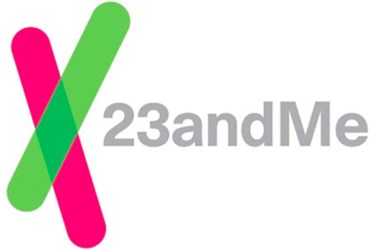Google-Backed 23andMe Takes First Step Toward FDA Approval Of Genetic Testing Kit
By Jof Enriquez,
Follow me on Twitter @jofenriq

Personalized genomics company 23andMe announced that the U.S. FDA has accepted a 510(k) health-report submission from the company. The Google-backed firm hopes the submission will bring it one step closer to being allowed to sell genetic health testing kits to consumers once again — seven months after the company was told by regulators to stop.
23andMe’s submission for Bloom syndrome, an inherited condition characterized by small stature, skin problems, and increased risk of cancer, is the first step in the FDA’s 510(k) regulatory review process, according to a report by Fast Company. A regulatory panel has 90 days to review the report submitted by 23andMe, and the panel could ask for more information, the company acknowledged.
“While we are still in the very early stages of this regulatory review process, we remain committed to transparency and keeping our customers as informed as possible. This by no means is the end of the process even for this one condition,” 23andMe chief legal and regulatory officer Kathy Hibbs, wrote in a statement.
“Once cleared, it will help 23andMe, and the FDA, establish the parameters for future submissions. More importantly, for our customers, it marks a baseline on the accuracy and validity of the information we report back to them,” she added.
The acceptance by the FDA signals a win for 23andMe, especially since it received a stern warning from the FDA seven months ago. In a November 2013 letter addressed to 23andMe’s CEO, Ann Wojcicki, the FDA said that the company is “marketing the 23andMe Saliva Collection Kit and Personal Genome Service (PGS) without marketing clearance or approval in violation of the Federal Food, Drug and Cosmetic Act (the FD&C Act).”
The letter ordered 23andMe to “immediately discontinue marketing the PGS until such time as it receives FDA marketing authorization for the device.” The FDA said it decided to do so because of the “public health consequences of inaccurate results” that the PGS kit could produce.
In response to the FDA restriction, Wojcicki said that 23andMe’s “relationship with the FDA remains critically important,” and stressed that it was critical for their customers to have access to quality genetic information.
“The work we are doing with the agency will help lay the groundwork for what other companies in this new industry do in the future,” she said in the statement.
In a blog post this week, CDRH director Jeffrey Shuren clarified the agency’s position on the marketing of genomic tests to consumers. “FDA is not standing in the way of 23andMe selling tests intended to help consumers trace their ancestry, identify relatives and tell them why they like or don’t like the taste of cilantro,” he wrote. “Our concern remains that genetic tests for diseases, just like other tests for medical conditions, such as hemoglobin A1C for diabetes (glucose control) should be accurate.”
23andMe spokeswoman Catherine Afarian told Reuters that the company is also “exploring international opportunities” and is hopeful that foreign regulators will grant approval for their product. The overseas markets under consideration include Canada, Australia, and the United Kingdom, according to Reuters.
